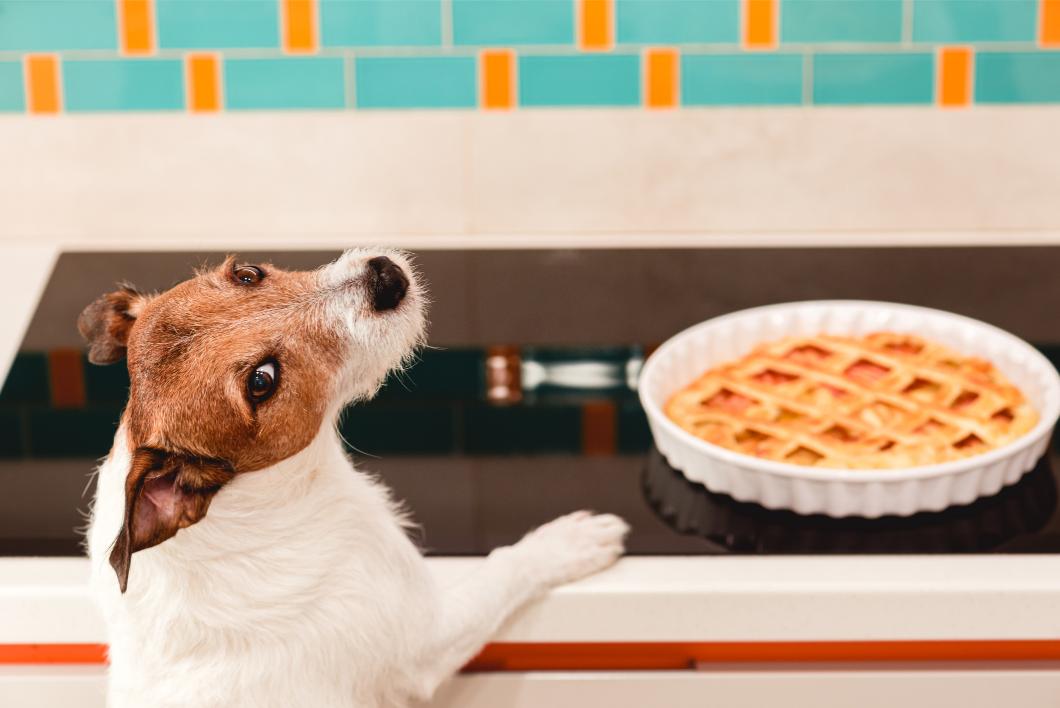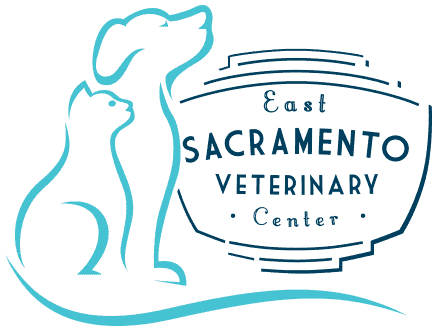Thanksgiving Foods to Avoid Giving Your Pet

If you share your home with a dog or cat, then you know you have a ton to be thankful for! Keep up that attitude of gratitude this season by following these safety tips for Thanksgiving foods to avoid for pets:
The Main Course
Turkey with gravy is nothing short of iconic this time of year. But this roasted, smoked, or deep-fried tradition can be too rich for a pet who is used to a routine pet food diet. The skin, fat, and seasonings can lead to pancreatitis, which is “painful inflammation of the pancreas that can make pets extremely ill.” Because the pancreas plays a role in insulin production and digestion, inflammation can lead to simple stomach upset or even death. Signs of pancreatitis include listlessness, vomiting, and diarrhea.
Another main dish Thanksgiving pet food hazard is those turkey bones, which can lead to choking or intestinal blockages.
Side Dishes
Onions and garlic turn dishes like stuffing and mashed potatoes into holiday feasting magic, but they can be toxic to dogs and cats. There are compounds in various onions and in garlic that can lead to anemia in pets, so you should avoid giving these raw, cooked, or dried. If you suspect that your pet has ingested onions or garlic, you may notice weakness and pale gums.
Even dinner rolls may seem relatively harmless, but yeasted breads can cause uncomfortable gas and bloating, whether from raw dough or baked rolls. With all that bloating and rumbling, intestinal damage is a real risk.
Desserts
We’re all tempted by a little something sweet after the main Thanksgiving meal, but desserts are a general no-no for pets. Raisins, chocolates, some nuts, even the artificial sweetener xylitol can all have different toxic effects:
- Raisins and grapes can cause kidney failure. Watch for vomiting, diarrhea, and lethargy.
- Milk chocolate, dark chocolate, and white chocolate can have various effects, but toxicity can be fatal. Look out for increased heart and breathing rates, excessive thirst, vomiting, diarrhea, and/or seizures.
- Tree nuts and peanuts can be another source of pancreatitis due to their high fat content. And in fact, macadamia nuts are especially problematic for pets. Signs of a problem include weakness, vomiting, and tremors.
- Sugar-free does not necessarily mean safe for pets. The artificial sweetener xylitol can be yet another source of pancreatic problems, and can lead to lethargy, incoordination, and seizures.
In Case of a Mealtime Emergency
If your dog or cat “counter surfs” or snags an under the table snack, you can contact us on most weekdays, but for a holiday emergency involving dangerous Thanksgiving foods for pets, be ready with this info:
- Telephone number and location for the closest animal emergency hospital
- Contact details for Pet Poison Helpline and ASPCA Pet Poison Control
- Your dog or cat’s age, approximate weight, routine medications, and chronic conditions
Your pet does not have to be left out of Thanksgiving traditions. When you sit down to feast, give your dog or cat an extra bit of kibble or some of their regular treats. The social bonds of eating together are important, but it’s also vital to protect your pet’s health by avoiding Thanksgiving pet food hazards!
